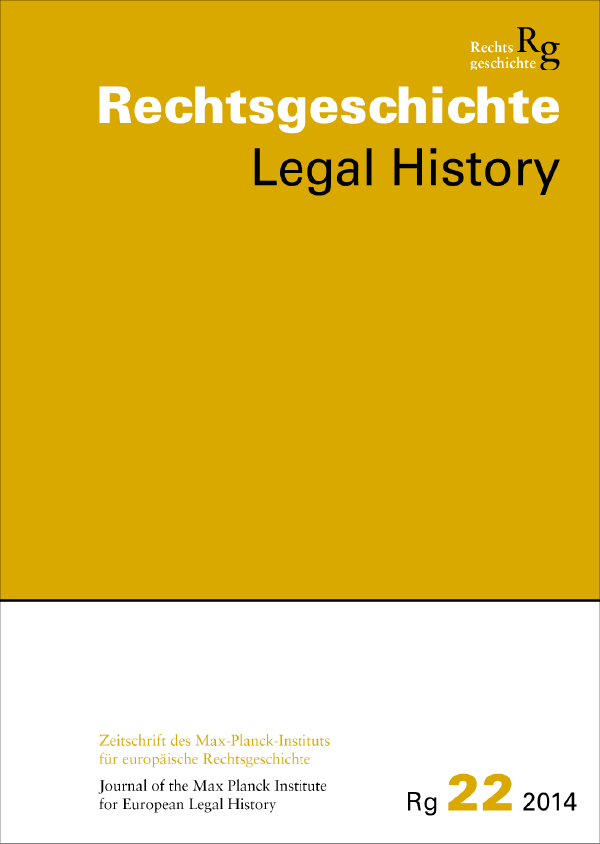The Law of the Other
An unknown Islamic chapter in the legal history of Europe
DOI:
https://doi.org/10.12946/rg22/090-118Abstract
As the Other is indispensable for the construction of self-identity and collective identity, the question of the Other is viscerally linked not only to the question of identity but also to law. Starting from some reflections in philosophy about Otherness and the sociological inquiries of building collective identities a fundamental problem remains: Who is the Other? Or: What does Europe have to gain from rediscovering the History of the Muslim Other and his normative space in order to understand his collective identity and to resituate his Otherness in an inclusive plural albeit value oriented Europe?
There is no doubt that historians recognize the decisive role played by translations and Arab thought for the reception of the heritage of Antiquity and Greek philosophy. But don’t they remain blind about the role of the evolution of the realm of normativity in Europe?
In order to tackle this complex question some Islamic pasts will be remembered in a first step (I). Then a further look is thrown upon Islamic Law in the History of European Law (II), whereas the case of Spain is analysed as a problem of interacting and overlapping legal cultures on the basis of a critical analysis of research traditions (III). New challenges arise for a more complex understanding of a selective collective memory on the one side and the necessity to improve our knowledge of this entangled normative history beyond the case of Al-Andalus on the other side in: Sicily, France, England and East Southern Europe.
Downloads
Published
How to Cite
Issue
Section
License
Copyright (c) 2014 Author

This work is licensed under a Creative Commons Attribution-NonCommercial-NoDerivatives 3.0 Unported License.





